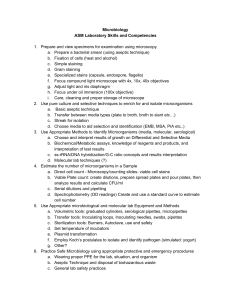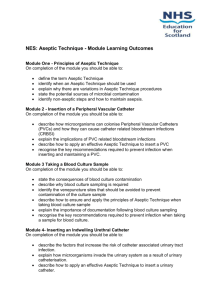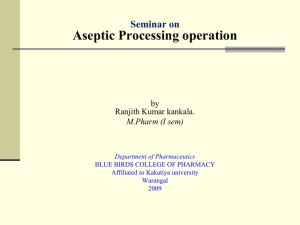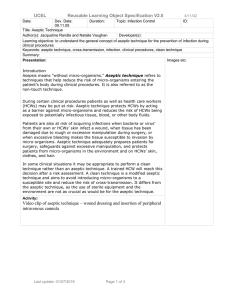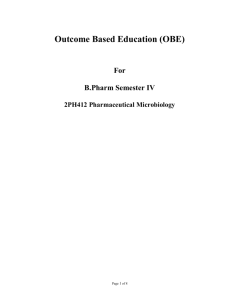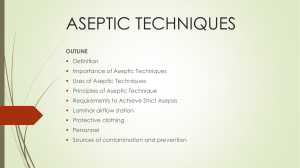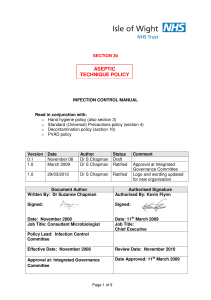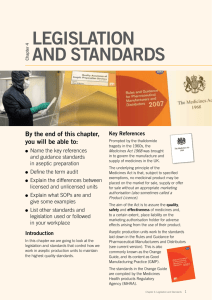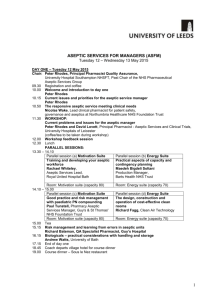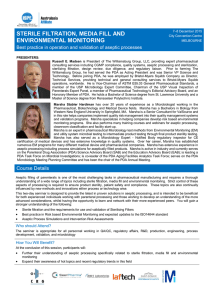Aseptic technique
advertisement
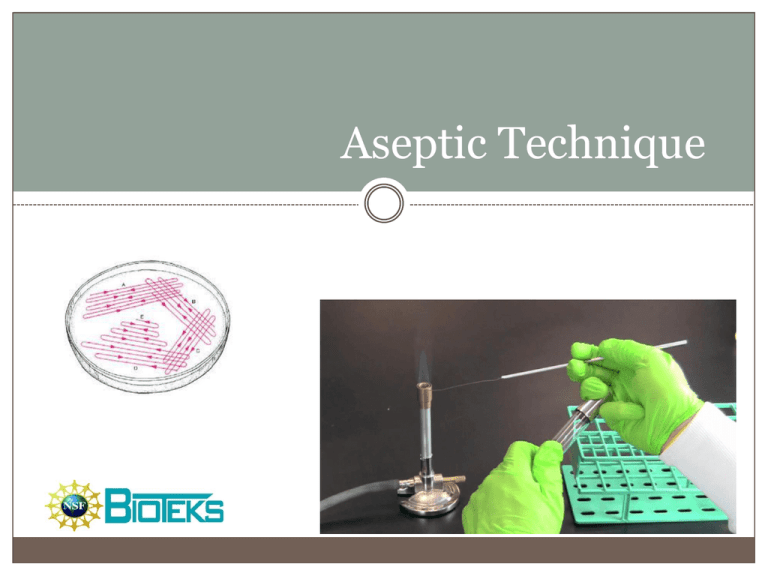
Aseptic Technique What is Aseptic Technique? Aseptic technique is a method used in laboratories or clinical setting to prevent the transmission of unwanted organisms. Aseptic Technique (cont.) The goal is to prevent contamination of what you are working on, whether it is someone’s wound or a bacterial culture that is of interest. Microorganisms are everywhere! In the environment and in and on your body Therefore, aseptic technique takes vigilance as bacteria and other microbes may be present on your work bench, floating in the air currents, etc. Proper aseptic technique can prevent contamination from any source. Minimizing/Eliminating Contamination One way to minimize contamination is to not perform your techniques in drafty areas, this lessens the chance of air-born microorganisms contaminating your culture. Also you should always make sure that the surface that you are working on has been disinfected, eliminating another potential source of contamination. Minimizing/Eliminating Contamination Any materials that will contact your experiments should be sterilized by flaming and all supplies should not be exposed to the air. Any lids that are removed from your experiment should never be placed on the bench top since that is another source of contamination. Instead, they should be held in your hands in an inverted position so no microorganisms can fall into the lid and be introduced into your experiment. Aseptic Technique Basics Aseptic Technique is perhaps best learned by observing and practicing. The video link below provides an excellent visual introduction to some of the basics of aseptic technique in the microbiology lab. Aseptic Technique Video Flaming an Inoculating Loop Inoculating a Broth Inoculating an agar slant from an agar plate
